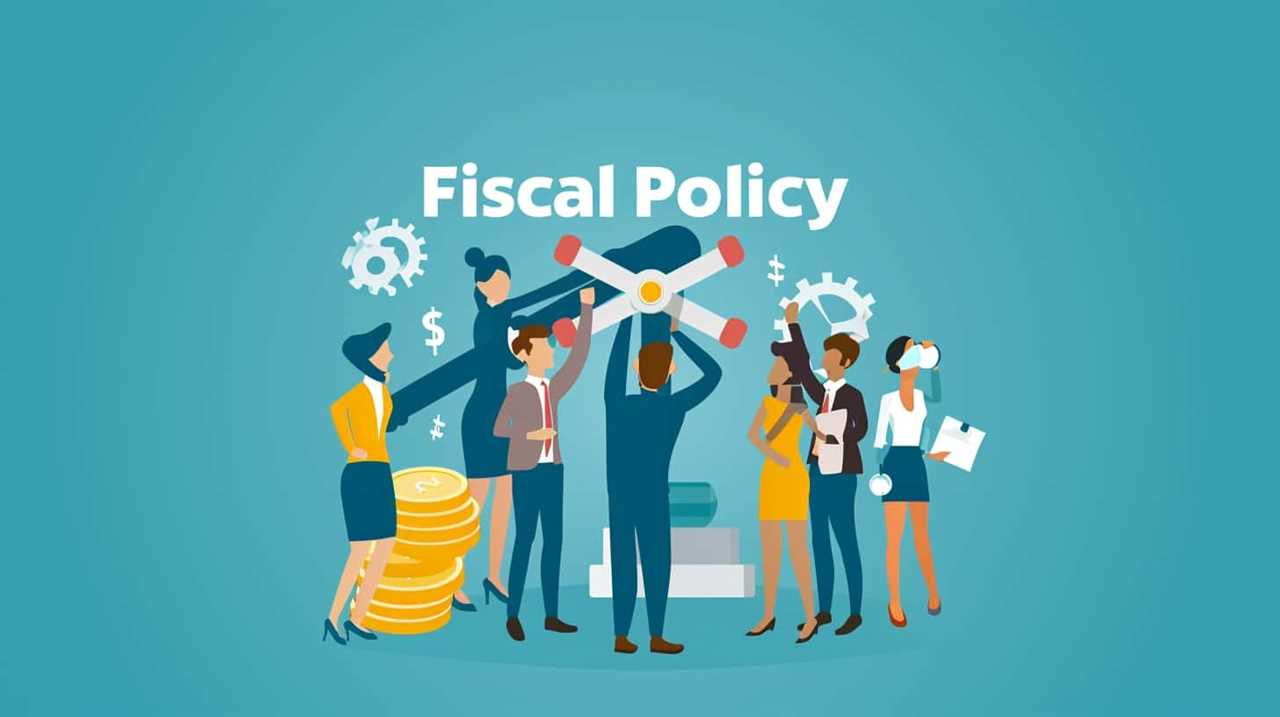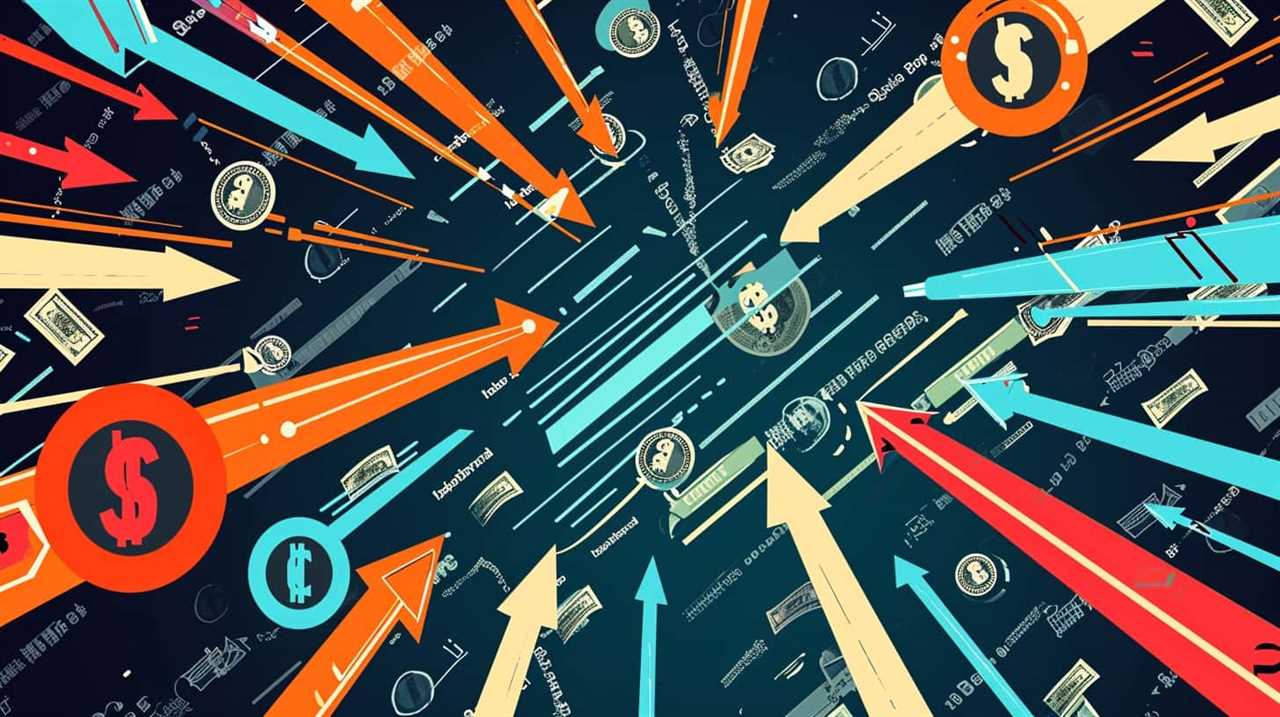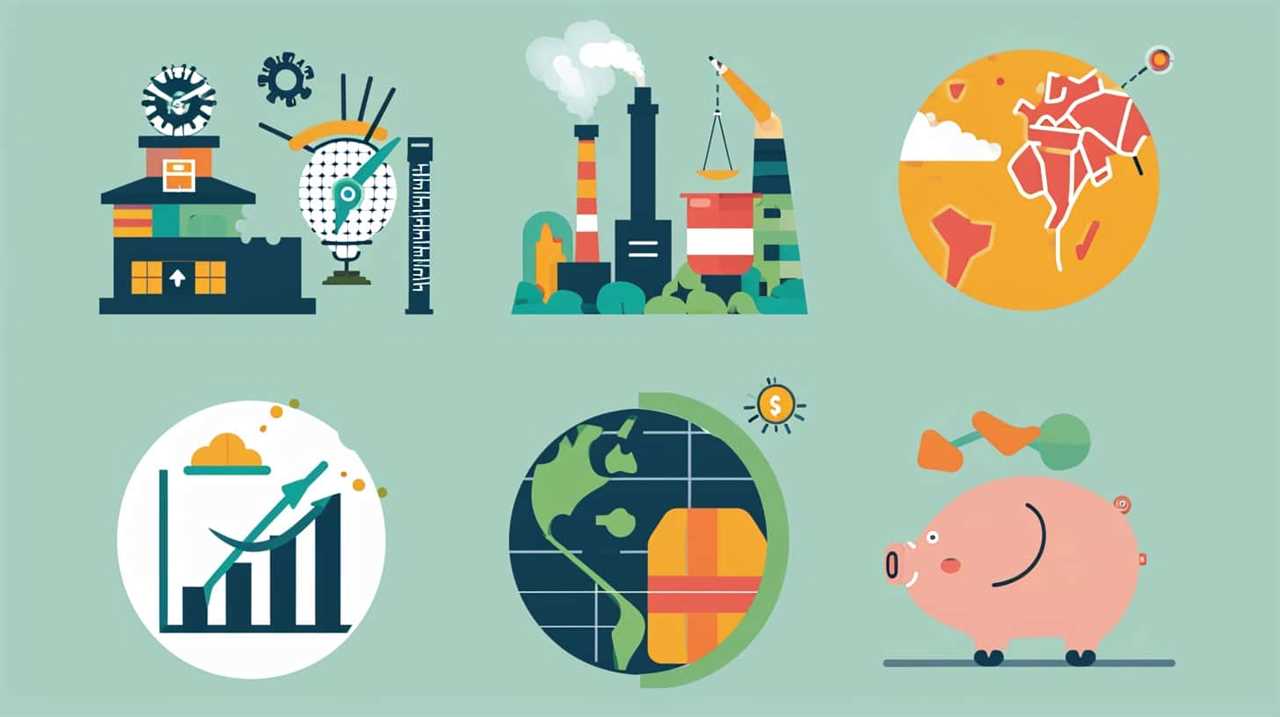Welcome, fellow seekers of innovation, to an examination of the three main criticisms of neoliberalism in economics.
Like a restless tide eroding the shores of progress, neoliberalism has been a dominant force shaping our economic landscape. But amidst the clamor for innovation, it becomes crucial to critically examine the flaws that lie within this ideology.
Our journey will unveil the first critique: the lack of regulation and the subsequent market failures that ensue.
Next, we will delve into the widening income inequality, a disheartening consequence of neoliberal policies.

Lastly, we will confront the negative social and environmental impacts that have been overlooked in the pursuit of unchecked economic growth.
So, let us embark on this voyage of knowledge, as we challenge the status quo and seek a more equitable and sustainable future.
Key Takeaways
- Lack of regulation can lead to market failures, as seen in the financial crisis of 2008.
- Neoliberal policies exacerbate income inequality, leading to wealth concentration and wage stagnation.
- Neoliberalism has negative social and environmental impacts, including resource depletion and the displacement of local communities.
- Economic inefficiency and short-term gains are prioritized over long-term sustainability, undermining democratic processes.
Lack of Regulation and Market Failures
One of the key critiques of neoliberalism in economics is the detrimental effects caused by the lack of regulation and the resulting market failures. Neoliberalism advocates for minimal government intervention in the economy, with the belief that free markets will lead to optimal outcomes. However, this approach has been criticized for its inability to effectively address economic instability.
The absence of regulation can lead to market failures, where the free market fails to allocate resources efficiently. One example of this is the financial crisis of 2008, where deregulation in the banking sector allowed for risky lending practices and speculative behavior, ultimately leading to the collapse of major financial institutions.

Furthermore, the lack of regulation can exacerbate economic instability. Without government oversight, market participants may engage in predatory practices, monopolistic behavior, or engage in excessive risk-taking, which can destabilize the economy. This was evident in the dot-com bubble of the late 1990s and the subsequent burst, where excessive speculation and lack of regulation contributed to a severe economic downturn.
In order to mitigate these negative effects, some argue for the importance of government intervention to ensure fair competition, protect consumers, and stabilize the economy. Regulations can help prevent market failures and promote economic stability by setting standards, monitoring financial activities, and enforcing rules to maintain a level playing field.
Widening Income Inequality
Continuing from the previous subtopic, a significant concern related to neoliberalism in economics is the widening income inequality. This issue is characterized by wealth concentration and wage stagnation, which have far-reaching implications for society. Here are five key points to consider:
- Wealth concentration: Neoliberal policies often prioritize the interests of the wealthy, leading to an accumulation of wealth in the hands of a few. This concentration of wealth can exacerbate income inequality and hinder social mobility.
- Wage stagnation: Under neoliberalism, there’s a tendency for wages to remain stagnant or grow at a slower rate compared to the growth of productivity. This means that workers aren’t adequately benefiting from their increased contributions to the economy, further widening the income gap.
- Social implications: Widening income inequality can have negative social consequences, such as increased poverty rates, reduced access to quality education and healthcare, and heightened social tension. These factors can hinder social progress and perpetuate inequality across generations.
- Economic inefficiency: Extreme income inequality can lead to economic inefficiencies, such as decreased consumer demand and increased social costs. This can ultimately hinder overall economic growth and innovation.
- Political influence: The concentration of wealth and income disparities can also lead to unequal political influence, as the wealthy can exert more power and shape policies in their favor. This can undermine democratic processes and further entrench income inequality.
Examining the widening income inequality in the context of neoliberalism is crucial for understanding the potential challenges it poses to society, the economy, and the democratic process. It’s necessary to explore alternative approaches that can address these concerns while fostering innovation and inclusive growth.

Negative Social and Environmental Impacts
In examining the widening income inequality caused by neoliberalism, we must also address the negative social and environmental impacts it engenders. Neoliberal policies, with their emphasis on deregulation and privatization, have led to resource depletion and the displacement of local communities.
One of the key consequences of neoliberalism is the depletion of natural resources. As corporations are given free rein to exploit resources for profit, we witness the unsustainable extraction of minerals, fossil fuels, and timber. This not only damages the environment but also threatens the livelihoods of future generations.
Furthermore, neoliberalism often results in the displacement of local communities. As multinational corporations seek to maximize their profits, they often disregard the well-being of local populations. Communities are uprooted from their homes, losing their land, culture, and sense of belonging. This leads to social disintegration and exacerbates inequality.
To better illustrate these negative impacts, let’s take a closer look at the table below:

| Negative Impacts of Neoliberalism | Examples |
|---|---|
| Resource Depletion | Overfishing, deforestation, excessive mining |
| Displacement of Local Communities | Forced evictions, land grabs, destruction of indigenous cultures |
It is essential that we critically examine these negative social and environmental impacts of neoliberalism. Only through a comprehensive understanding can we develop alternative economic models that prioritize sustainability, social justice, and the well-being of both people and the planet.
Frequently Asked Questions
How Does Neoliberalism Impact the Availability and Affordability of Healthcare and Education?
Neoliberalism’s impact on access and affordability of healthcare and education is concerning. It often prioritizes market forces over public provision, leading to gaps in coverage and unequal opportunities.
What Are the Implications of Neoliberal Policies on Workers’ Rights and Job Security?
Neoliberal policies have significant implications for workers’ rights and job security. The flexibilization of labor and impacts on wages are key concerns. These changes have reshaped the employment landscape, leading to increased precarity and inequality.
How Does Neoliberalism Contribute to the Concentration of Wealth and Power Among a Few Individuals or Corporations?
Neoliberalism’s corporate influence and emphasis on free markets can contribute to the concentration of wealth and power among a few, leading to income inequality. This has been a key critique of the economic ideology.

What Are the Long-Term Consequences of Neoliberalism on the Environment and Climate Change?
The long-term consequences of neoliberalism on the environment and climate change include increased carbon emissions and deforestation due to the prioritization of economic growth and market deregulation. These trends have significant implications for the sustainability of our planet.
How Does Neoliberalism Affect Social Cohesion and Community Well-Being?
Neoliberalism’s impact on social inequality and erosion of social safety nets have led to a decline in social cohesion and community well-being. Evidence shows that these dynamics hinder innovation and hinder long-term economic growth.
Can Neoliberalism in Economics Impact Romanticism in Literature?
Neoliberalism in economics may shape society’s values, impacting the portrayal of romance in literature. However, timeless literary love quotes continue to resonate regardless, reflecting the enduring nature of human emotions. While economic policies come and go, the power and beauty of love expressed in literature remain constant.
Conclusion
In conclusion, neoliberalism’s lack of regulation has resulted in market failures, widening income inequality, and negative social and environmental impacts.
It’s imperative to recognize and address these issues to create a more equitable and sustainable economic system. Just as a ship sailing without a compass risks veering off course, blindly following neoliberal principles risks steering our society towards further inequality and harm.

It’s time to reevaluate and prioritize the well-being of all individuals and our planet.
Lauren’s talent in writing is matched by her passion for storytelling. Her love for books and deep understanding of culture and entertainment add a distinct flavor to her work. As our media and press contact, Lauren skillfully bridges the gap between afterQuotes and the broader media landscape, bringing our message to a wider audience.










